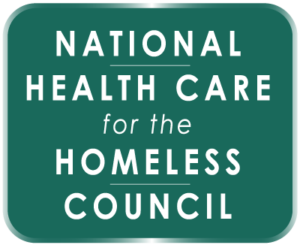March 8, 2022
Three of California’s leading health-related organizations are partnering with the National Institute for Medical Respite Care (NIMRC) in a $3.4 million effort to advance the quality and best practices of recuperative care for people experiencing homelessness throughout the state.
Recuperative care (also known as medical respite care) is acute and post-acute care for people experiencing homelessness who are too sick or frail to recover from an illness or injury on the streets or in a shelter, but no longer require hospital-level care. It provides short-term residential care that allows individuals experiencing homelessness the opportunity to rest, recover, and heal in a safe environment while accessing medical care and other supportive services.
Kaiser Permanente, Dignity Health, and the California Health Care Foundation will collaborate over the next two years with NIMRC to expand the capacity of recuperative care programs; accelerate standardization and optimization of the field through alignment with NIMRC standards of care; establish peer-to-peer learning communities; position programs for accreditation and reimbursement; and support the infrastructure of NIMRC. Since its launch in 2020, the three organizations have partnered with NIMRC to support recuperative care programs in California and throughout the nation.
“A key part of our mission is improving the health of our members and the communities we serve,” said Vanessa Davis, national program lead, housing for health at Kaiser Permanente. “Over the next two years, we will not only be supporting recuperative care programs, but also strengthening the infrastructure of NIMRC in service of these goals.”
Kaiser Permanente’s contribution to this effort is $2 million. Dignity Health’s contribution is $1 million, and the CHCF’s is $380,000.
“Caring for patients extends beyond the hospital stay. Through this combined work to strengthen recuperative care across the state, we can ensure that all patients have access to the care they need,” said Ashley Brand, director of community and homelessness health for CommonSpirit Health, the parent company of Dignity Health,
With the implementation of California’s Homeless Patient Discharge Planning Law in 2020, health facilities are required to have a discharge policy for all patients, including those who are experiencing homelessness. In an August 2020 report, the UniHealth Foundation cited recuperative care as “a critical component in the system of care that private hospitals depend upon to meet the needs of patients experiencing homelessness.” Recuperative care is offered in multiple settings, including freestanding facilities, homeless shelters, motels, and transitional housing. Programs are funded by hospitals, managed care organizations, private donations, foundation and charitable organizations, and government agencies.
“Recuperative care is vital in bridging gaps in access and care for Californians without housing,” said Michelle Schneiderman, director of Advancing People-Centered Care for California Health Care Foundation and a member of the NIMRC Advisory Panel. “With the launch of CalAIM in January 2022, there is now a clear path for managed care to support recuperative care.”
The number of people experiencing homelessness in California rose from approximately 129,000 in 2018 to approximately 160,000 in 2020, according to estimates from the U.S. Department of Housing and Urban Development (HUD). As the number of people experiencing homelessness continues to grow, recuperative care has also grown and proven to be a vital component of moving people into housing. As of February 2022, there are 133 medical respite or recuperative care programs nationally, with more than 40 of those based in California. Despite this number, there is still a significant shortfall in recuperative care beds compared to the demand.
Beyond California, NIMRC’s work with Kaiser Permanente and CommonSpirit /Dignity Health, will support recuperative care in national markets across 10 additional states and the District of Columbia. The California Health Care Foundation will work with NIMRC to develop expertise on California-specific policy and practice, and to understand opportunities and challenges related to CalAIM (the California Advancing and Innovating Medi-Cal program).
The partnership between the three California organizations and NIMRC is crucial to expanding recuperative care in the state and nationwide, and the partners expect rapid results.
“NIMRC expects that the next two years will result in major steps forward for recuperative care, which has proven to advance health equity” said Bobby Watts, director of NIMRC and chief executive officer of the National Health Care for the Homeless Council, “and California and will serve as a bellwether for the nation.”
Media Contact:
Terri Woodmore,
Communications Manager
twoodmore@nhchc.org
615.226.2292, ext. 245

